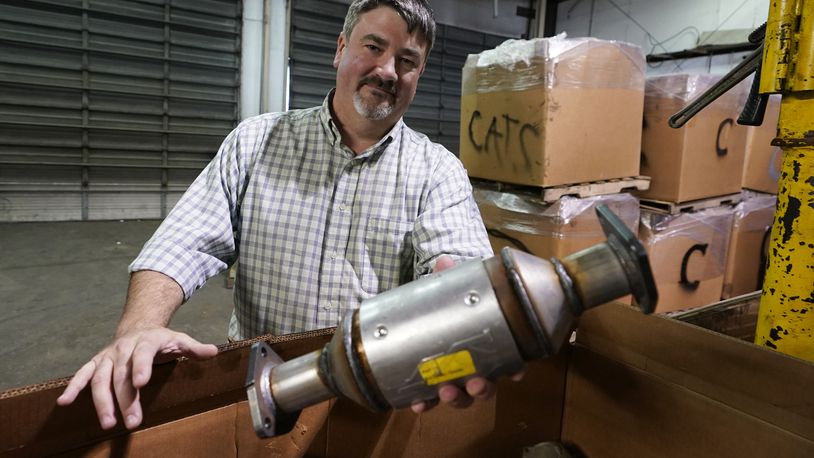More than 70 reports were handled by DPD in 2020. In 2021, the number of reports jumped to 282. The following year saw 325 reports related to catalytic converter theft. Nearly 100 reports have been handled by Dayton’s police this year as of the end of April.
DPD did not return a request for comment in regard to the frequency in catalytic converter theft.
An Ohio House bill (HB 110) aims to reduce catalytic converter theft by prohibiting people from selling the car parts without proof of ownership.
Ohio Rep. Bob Young (R-Green), who introduced an earlier version of the bill in the 134th General Assembly, said in a recent statement that thefts of the devices have increased in Ohio and across the country. Rep. Bill Roemer, a Richfield Republican, is joint sponsor on the bill.
A report based on insurance claims data released by the National Insurance Crime Bureau shows a surge in catalytic converter thefts across the country. In total, the nation experienced more than 64,000 catalytic converter thefts in 2022.
Leading the country are California and Texas, which experienced more than 32,000 catalytic converter thefts last year.
Once converters are stolen, vehicles can be out of commission for weeks. Repairs can cost $933 to $4,414, according to Consumer Affairs.
“This new data is just a snapshot of an underreported crime that affects communities across the nation,” said David J. Glawe, President and CEO of NICB, in a press release. “While a catalytic converter can be removed in just a few minutes, for vehicle owners, the cost is much more than the replacement parts. Victims must find alternate transportation, schedule necessary repairs, and may face loss of work as a result.”
Both Roemer and Young said that their bill intends to protect consumers from catalytic converter theft and create more transparent guidelines for businesses.
Catalytic converters are important to vehicles because they change harmful compounds from an engine’s emissions into safe gasses released from the car’s exhaust system, Young and Roemer said.
Local state representatives Andrea White (R-Kettering) and Phil Plummer (R-Dayton) backed the bill as co-sponsors, voicing a need for catalytic converter legislation.
The bill, which is currently sitting in the criminal justice committee in the Ohio House of Representatives, also includes the following provisions:
- Expanding the Department of Public Safety’s authority to go after unlicensed scrap yards and other “bad actor” businesses.
- Requiring DPS to “ensure” that local law enforcement is investigating catalytic converter thefts under certain circumstances.
- Adding a trigger provision if Congress requires vehicles to have a vehicle identification number.
About the Author
